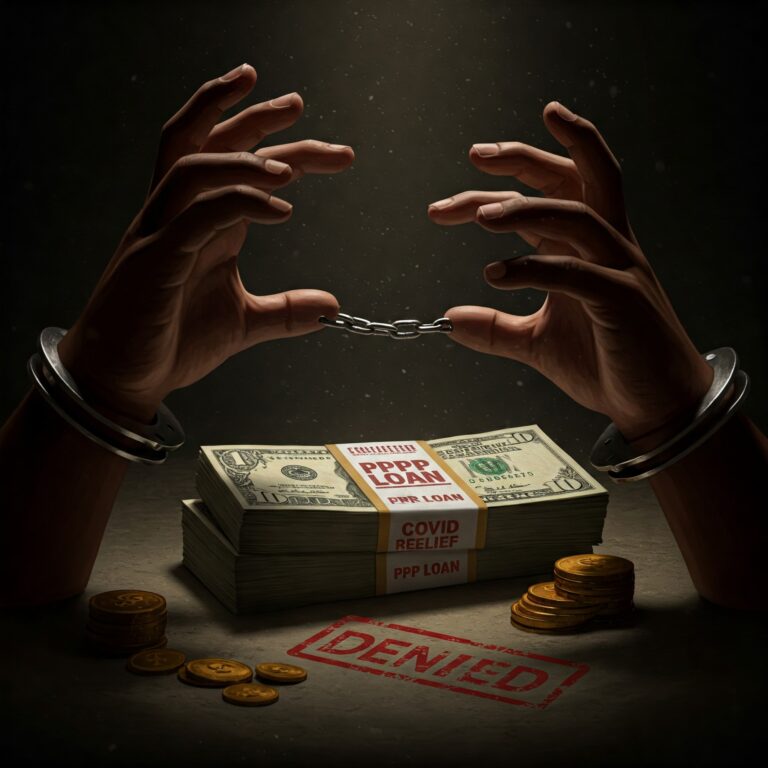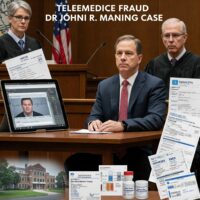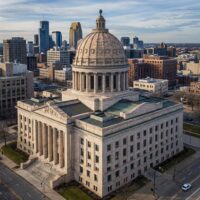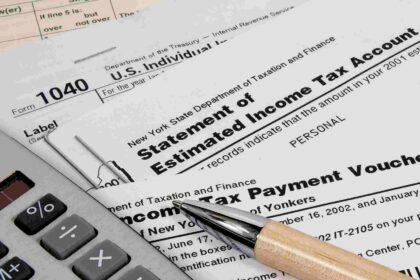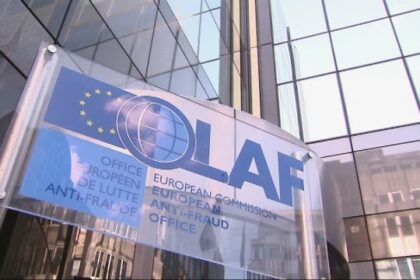MEMPHIS, TN – A Mississippi woman has admitted to masterminding a sophisticated scheme that defrauded the U.S. government’s Paycheck Protection Program (PPP) of over $5 million. Lisa Evans, 42, of Olive Branch, Mississippi, pleaded guilty to conspiracy to commit wire fraud on February 20, 2025, before United States District Judge Thomas L. Parker. The case highlights the ongoing efforts by federal authorities to crack down on fraudulent activity related to pandemic relief funds.
The Multi-Million Dollar Scheme: How it Worked
According to court documents and information presented in court, Evans orchestrated a widespread fraud operation that exploited the PPP, a program designed to provide forgivable loans to small businesses struggling during the COVID-19 pandemic. The scheme, which resulted in a staggering $5,126,258 loss to the program, involved submitting fraudulent loan applications on behalf of numerous individuals who were not eligible for PPP funds.
The key to Evans’s operation was the fabrication of supporting documentation. The applications she submitted contained false representations, including entirely fabricated federal tax documents. These fake documents were designed to make it appear as though the applicants met the eligibility requirements for PPP loans, such as demonstrating a legitimate business with employees and payroll expenses.
Once the fraudulent applications were approved and the PPP loan funds were disbursed, Evans demanded kickbacks from the individuals who received the money. These kickbacks ranged from 20 to 30 percent of the loan amount, ensuring a substantial profit for Evans. This arrangement highlights the brazen and organized nature of the fraud.
No Parole in the Federal System
Evans now faces a maximum sentence of 20 years in federal prison. It’s crucial to note that there is no parole in the federal system. This means that any sentence imposed by Judge Parker will be served in its entirety, less any potential reductions for good behavior while incarcerated (which are typically limited). Her sentencing is scheduled for May 22, 2025.
The Crackdown on Pandemic Relief Fraud: A National Priority
Acting U.S. Attorney for the Western District of Tennessee, Reagan Fondren, emphasized the seriousness of the crime and the commitment of federal agencies to prosecuting those who exploited pandemic relief programs.
Individuals cheating the Paycheck Protection Program stole money from U.S. taxpayers who desperately needed these loans to keep their small businesses afloat and pay their employees during the COVID-19 pandemic,” Fondren stated. “My office will continue to work with these law enforcement partners to bring those who committed pandemic benefit fraud in the Western District of Tennessee to justice and to recover stolen pandemic relief funds.”
The investigation and prosecution of Evans involved a collaborative effort among multiple federal agencies, demonstrating the extensive resources being dedicated to combating PPP fraud. The agencies involved include:
- Federal Housing Finance Agency Office of Inspector General (FHFA-OIG)
- Federal Deposit Insurance Corporation Office of Inspector General (FDIC-OIG)
- U.S. Treasury Inspector General for Tax Administration, Gulf States Field Division (TIGTA)
- U.S. Small Business Administration Office of Inspector General (SBA-OIG)
- U.S. Secret Service, Memphis Field Office
- Pandemic Response Accountability Committee (PRAC)
The involvement of these agencies underscores the multi-faceted nature of investigating and prosecuting financial crimes, particularly those involving complex federal programs. The PRAC, in particular, was established specifically to oversee and coordinate the response to pandemic-related spending, highlighting the ongoing scrutiny of these funds.
Assistant U.S. Attorney Tony Arvin prosecuted the case.
Frequently Asked Questions (FAQ) About PPP Loan Fraud
To further enhance the article’s SEO value and provide comprehensive information to readers, I’ve included a FAQ section addressing common questions related to PPP loan fraud:
Q: What is the Paycheck Protection Program (PPP)?
A: The Paycheck Protection Program (PPP) was a federal loan program established as part of the CARES Act in 2020. It was designed to provide forgivable loans to small businesses to help them cover payroll costs, rent, utilities, and other eligible expenses during the COVID-19 pandemic. The goal was to help businesses stay afloat and keep their employees on the payroll.
Q: What are some common types of PPP loan fraud?
A: PPP loan fraud can take many forms, including:
- Inflating Payroll Costs: Exaggerating the number of employees or their salaries to obtain a larger loan.
- Falsifying Business Information: Creating fake businesses or misrepresenting the nature of a business to qualify for a loan.
- Using Loan Funds for Ineligible Purposes: Spending PPP funds on personal expenses or other non-business-related costs.
- Submitting Multiple Applications: Applying for multiple PPP loans through different lenders or using different business entities.
- Identity Theft: Using stolen identities to apply for PPP loans.
- Fake Tax Documents
Q: What are the penalties for PPP loan fraud?
A: The penalties for PPP loan fraud can be severe, including:
- Prison Time: Substantial prison sentences, potentially decades, depending on the amount of fraud and other factors.
- Fines: Significant financial penalties, often exceeding the amount of the fraudulent loan.
- Restitution: Repayment of the fraudulently obtained funds.
- Asset Forfeiture: Seizure of assets acquired with the proceeds of the fraud.
- Criminal Record: A permanent criminal record, which can impact future employment, housing, and other opportunities.
Q: How is PPP loan fraud detected?
A: Federal agencies use various methods to detect PPP loan fraud, including:
- Data Analytics: Analyzing loan application data to identify patterns and anomalies that suggest fraud.
- Audits: Conducting audits of businesses that received PPP loans.
- Whistleblower Tips: Receiving information from individuals who have knowledge of fraudulent activity.
- Interagency Collaboration: Sharing information and resources among different federal agencies.
- Bank Cooperation: Banks that processed PPP loans are often required to report suspicious activity.
Q: What should I do if I suspect PPP loan fraud?
A: If you have information about potential PPP loan fraud, you can report it to:
- The Small Business Administration (SBA) Office of Inspector General: [Insert SBA OIG Hotline Link/Phone Number Here – This needs to be added for real publication]
- The Department of Justice (DOJ) National Center for Disaster Fraud (NCDF): [Insert NCDF Hotline Link/Phone Number Here – This needs to be added for real publication]
- Your local FBI field office.
Q: Will there be more prosecutions of PPP loan fraud?
A: Yes. Federal authorities have made it clear that prosecuting PPP loan fraud is a top priority. The investigation and prosecution of these cases are expected to continue for years to come. The complexity of many of these schemes, coupled with the sheer volume of loans disbursed, means that investigations can be lengthy and require significant resources.
The Broader Implications
The Lisa Evans case serves as a stark reminder of the vulnerability of large-scale government programs to fraud. While the PPP provided crucial assistance to many legitimate businesses, it also created opportunities for unscrupulous individuals to exploit the system. This case, and others like it, will likely lead to increased scrutiny of future government relief programs and potentially stricter eligibility requirements and oversight mechanisms.
The case also highlights the importance of interagency cooperation in combating complex financial crimes. The successful prosecution of Evans was the result of a coordinated effort among multiple federal agencies, each bringing its unique expertise and resources to the table.
Staying Informed
The U.S. Attorney’s Office for the Western District of Tennessee encourages the public to stay informed about their activities and updates on cases like this. You can follow them on Facebook or on X at @WDTNNews. For media inquiries, contact the Media Relations Team at USATNW.Media@usdoj.gov.
